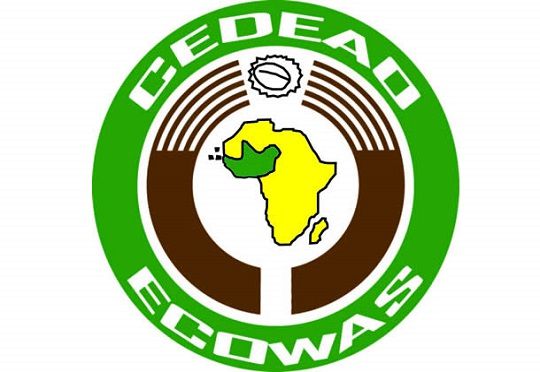The Economic Community of West African States (ECOWAS) is reviewing its Community Levy to ensure adequate collection of resources to finance activities of the Sub-regional body.
Mrs Hajiya Halima Ahmed, ECOWAS Commissioner for Finance, said hitherto, all ECOWAS activities were financed from contributions by Members States, creating difficulties, including the inability to implement programmes and at some instances even salaries of staff could not be paid.
She said the introduction of the Levy brought about improvements in terms of revenue generation and financing of activities, and constituted over 80 percent of all the financial needs of the ECOWAS.
The Commissioner said however, some gaps had been noted over the course of its implementation, hence the need for review.
She said some of the gaps included the issue of ambiguity where different States had different interpretations regarding the Levy, and this needed to be clarified.
Mrs Ahmed said the ambiguity led to some States not conforming to uniformity in the application of subsidies. Thus, whilst some States applied it fully, others did it partially, thereby affecting the amount of revenue being generated for the Community.
She also said some nations paid levies into the National treasuries instead of the ECOWAS dedicated accounts in the Central Banks of various countries.
The Commissioner said this behavior led to delays in remittances of proceeds in the ECOWAS accounts.
Meanwhile, ECOWAS experts converged on Monday, September 8, 2021, in Accra, to review and validate the draft Supplementary Act Setting the Conditions and Modalities for Community Levy Implementation and Management.
The Act once approved would replace the Protocol on Community Levy which had been in existence for 25 years now.
A validated draft Community Levy Act, alongside other community legislation meant to enhance intra-community trade and strengthen the ECOWAS Customs union, would be presented to the Meeting of ECOWAS Directors Generals (DGs) of Customs on Thursday.
After the DGs of Customs have reviewed all eight Supplementary Acts and Regulations of the Customs, they would table them before the Ministers of Finance Meeting, on Friday, November 12, 2021, for further review and onward presentation to the Council on Ministers in December 2021.
Mr Konzi Tei, ECOWAS Commissioner for Customs, Trade and Free Movement, said the closure of borders due to COVID-19 had impacted intra-trade activities.
He said it also led to shortage of food stuffs and distorted the logistical chain of goods.
However, Mr Tei said the Customs of various States in the region remained resilient in the discharge of their mandate and commended them for their efforts.
He said the discussion was ongoing amongst experts on how to re-open the borders and at the same time, control the spread of the pandemic.
Colonel Kwadwo Damoah (Rtd), Commissioner, Customs Division of Ghana Revenue Authority said even though countries were separated by borders, it was the duty of the Customs to unite them through mutual assistance and cooperation to the benefit of citizens.
He noted that West African States had important transit corridors to facilitate trade amongst each other, however, they were faced with inherent problems implementing transit trade in the Community.
Col Damoah said some of the problems included the presence of numerous barriers on the transit corridors, delays at ports and land borders, high cost incurred in transiting goods, potential revenue leakages due to activities of some unscrupulous economic operators to evade payment of duties or taxes and unreliable guarantee systems.
He urged all Member States to take advantage of the regional Customs interconnection project called SIGMAT, which had been rolled out by the ECOWAS, to enhance regional integration through the automation of transit procedures in the union.
The Project was designed by ECOWAS with the technical support of United Nations Conference on Trade and Development (UNCTAD).
It is aimed at the digital transmission of data on transit goods to the different customs administrations, prior to dispatch.
This way, the network will provide customs officers at transit and destination points with information on the transit goods well before the arrival of such goods.
The Commissioner said seven West African counties, including Cote D’voire, Togo, and Burkina Faso had already joined the system.
He said Ghana, Nigeria and Gambia were yet to be integrated, adding that, by the end of the year, he was hopeful that Ghana and Nigeria would be part of it.
“The Project will ensure that by using electronic means we will all have information simultaneously, so if goods leave a port, all neighbouring countries are aware of the movement and their security till the goods reach the destination without diversion.”
“By this, intended beneficiaries will receive their goods and the country that facilitated movement of the goods won’t lose revenue due to diversions,” he added.
Source: ghanaweb





